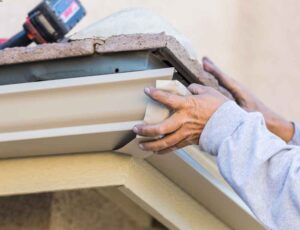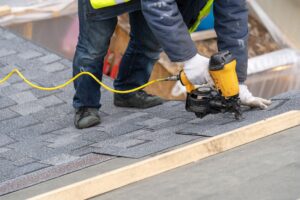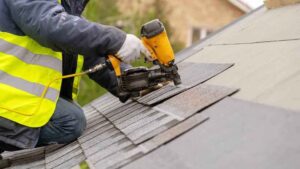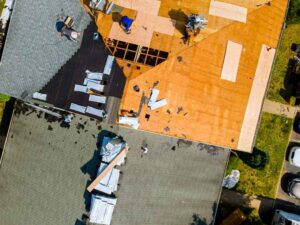In neighborhoods like the Highlands, Crescent Hill, and Old Louisville, homes come with charm—and often, original roofing that’s long past its prime. When it’s time for a replacement, many homeowners find themselves torn between two classic options: slate shingles and shake shingles.
Both are beautiful. Both have historic appeal. But they perform very differently—especially in Louisville’s climate. Whether you’re restoring a 1920s bungalow or renovating a Victorian, understanding the trade-offs between colonial slate roof shingles and cedar shake shingles can save you time, money, and maintenance down the road.
In this blog, you’ll learn:
- How slate roof shingles compare to wood shake shingles for longevity and weather resistance
- The pros and cons of each material when used on older Louisville homes
- What to consider before choosing (structure, cost, local codes)
- How Cornett Roofing Systems helps homeowners make the right call
Need guidance right away? Schedule a free roof inspection. We’ll help you evaluate your options and preserve the integrity of your historic home.
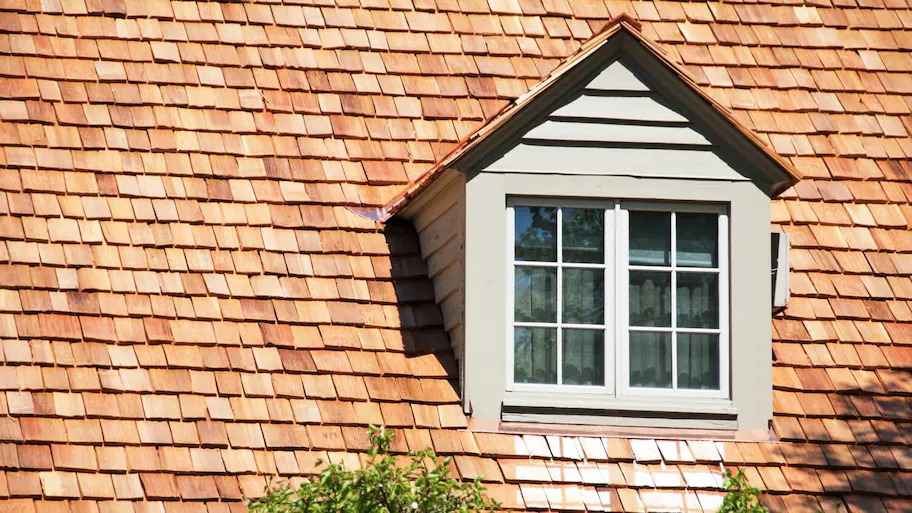
Why This Decision Matters for Older Louisville Homes
Louisville is a city rich with architectural history. From turn-of-the-century colonials to pre-war cottages, many local homes still wear their original roofing—or outdated replacements.
So what makes this decision so important?
- Slate shingles are incredibly durable but heavy, which can pose challenges for older rafters.
- Shake shingles (like cedar or wood shakes) offer a warm, traditional aesthetic, but they require ongoing maintenance.
- Some historic districts in Louisville may restrict roofing materials to preserve the neighborhood’s visual identity.
- The region’s weather—hot summers, ice storms, and freeze-thaw cycles—puts unique stress on roofing systems.
Choosing between slate roof shingles and cedar shake shingles isn’t just about looks—it’s about whether your roof will stand up to Louisville’s conditions long term.
What Homeowners Need to Know Before Choosing Slate or Shake
| Consideration | Why It Matters |
| Structural load | Slate is significantly heavier than shake. Your roof frame may need reinforcing. |
| Roof pitch | Slate is ideal for steeper roofs; shake performs best with proper slope and drainage. |
| Budget | Shake costs less upfront. Slate is pricier but lasts far longer. |
| Zoning & historic codes | Certain materials may be required or restricted in historic neighborhoods. |
| Maintenance tolerance | Slate needs little attention. Shake requires sealing, cleaning, and periodic replacement. |
If you’re unsure whether your home can support slate shingles structurally—or whether your HOA allows cedar shake shingles—Cornett Roofing Systems can inspect your roof and walk you through options.
Comparing Slate and Shake: Which One Fits Older Homes Better?
Let’s break it down by performance category.
1. Durability & Longevity
- Slate roof shingles can last 75 to 100+ years. They resist fire, pests, mold, and weather.
- Wood shake shingles, including cedar shake, typically last 30 to 40 years with proper upkeep.
Winner: Slate, hands down. You’ll pay more upfront but may never need another roof.
2. Maintenance Needs
- Slate requires minimal attention—just inspections and occasional individual tile replacement.
- Shake must be cleaned, re-sealed, and monitored for warping, cracking, and moss.
Winner: Slate again. Shake shingles are higher-maintenance, especially under trees or in shaded areas.
3. Aesthetics & Curb Appeal
- Colonial slate shingles offer a refined, uniform look that pairs beautifully with Louisville’s classic architecture.
- Cedar shake shingles deliver a more rustic charm, great for Craftsman or Tudor-style homes.
Winner: Tie. It comes down to the look you’re going for and your home’s style.
4. Weather Resistance
Louisville’s freeze-thaw cycles, storms, and humidity test every roof.
- Slate is non-porous and stable in all temperatures.
- Shake absorbs moisture over time and is more prone to mold, insects, and splitting.
Winner: Slate is better suited for long-term resilience in this climate.
Linking the Broader Roofing Conversation
If you’re still weighing all your options, not just slate and shake, you’ll want to read The Best Roofing Material for Midwest Homes & Offices. It covers metal, tile, and other durable roofing materials and how they stack up in the Midwest. It’s a great next step if you’re after permanent solutions.
Deep Dive: Technical Considerations & How Cornett Roofing Handles Them
When it comes to installing slate shingles or wood shake shingles on older homes, we don’t cut corners.
Here’s what we factor in:
- Structural reinforcement: We assess whether your roof can support slate—and strengthen it if needed.
- Waterproofing systems: Shake requires breathable underlayments and moisture control. Slate benefits from enhanced flashing.
- Ventilation: Critical for shake to prevent moisture buildup; less of an issue with slate.
- Fire safety: Slate is naturally fireproof; cedar shakes must be treated and inspected.
- Warranties: Our slate installations come with up to 50-year material warranties and 10-year workmanship coverage.
Whether you’re leaning toward the historical elegance of colonial slate roof shingles or the warm look of cedar shake shingles, our team will make sure the result is structurally sound, code-compliant, and built to last.
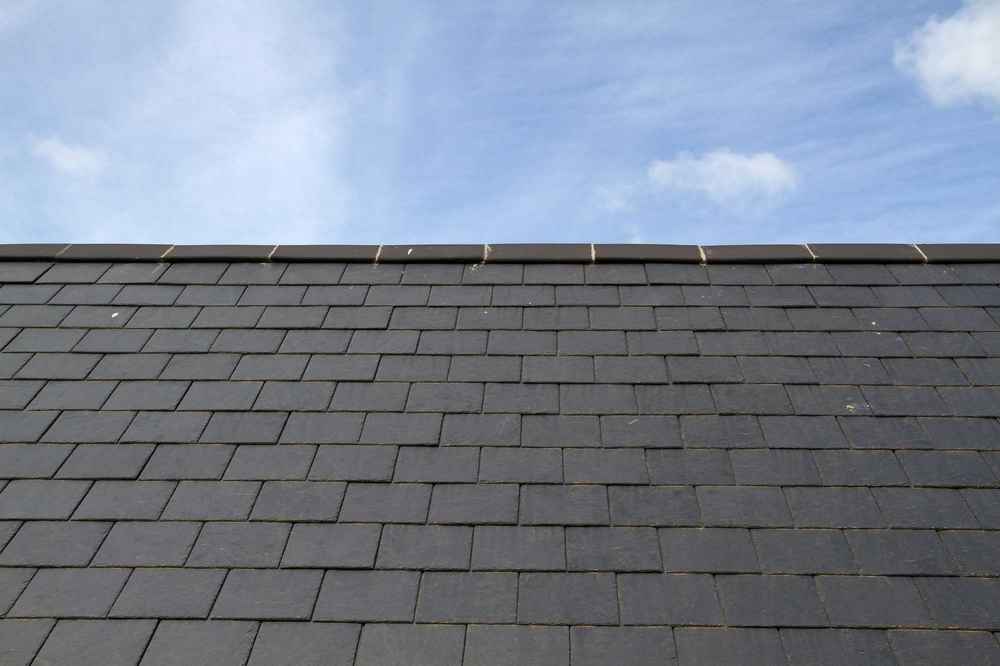
Louisville Roofing FAQs: Choosing Slate or Shake Shingles for Older Homes
Are slate shingles better than shake shingles for older Louisville homes?
Slate shingles are often better than shake shingles for older homes in Louisville because they last longer, require less maintenance, and handle moisture and temperature changes better. While cedar shake shingles provide classic charm, slate offers superior durability and is often approved in historic preservation districts.
What are colonial slate roof shingles?
Colonial slate roof shingles are a uniform style of slate roofing designed to mimic traditional, handcrafted roofing seen on historic homes. These slate shingles are popular in Louisville’s older neighborhoods because they match the period aesthetic and are typically accepted by preservation boards.
Can cedar shake shingles handle Louisville’s weather?
Cedar shake shingles can handle Louisville’s weather if properly maintained, but they’re more vulnerable to humidity, rot, and mold over time. If you’re in a shaded or tree-covered area, cedar shakes may not last as long as slate or other synthetic alternatives.
Will my older home support the weight of slate shingles?
Not all older Louisville homes can support the weight of natural slate shingles without reinforcement. Cornett Roofing conducts structural assessments to determine if modifications are needed—or if a synthetic slate alternative is more practical.
Do historic districts in Louisville allow both slate and shake shingles?
Most historic districts in Louisville prefer or require authentic materials like colonial slate shingles. Cedar shake shingles may be allowed if they match the home’s original style, but approval often depends on your exact location and your preservation board’s guidelines.
Which costs more: wood shake shingles or slate roof shingles?
Slate roof shingles generally cost more than wood shake shingles upfront, but they often outlast shake by several decades—making them a better investment over time for older homes where long-term performance matters.
How do I choose between shake shingles and slate for my home?
To choose between shake shingles and slate shingles for your Louisville home, consider your home’s architectural style, your budget, local code restrictions, and how long you plan to stay in the home. A free inspection from Cornett Roofing can help you make the right call.
Final Thoughts: What’s Best for Your Louisville Home?
If you own a historic or older home in Louisville and you’re deciding between slate shingles and shake shingles, here’s the bottom line:
- Choose slate roof shingles if you want unmatched longevity, fire resistance, and low maintenance.
- Choose cedar shake shingles if you love a rustic look and are willing to invest time in maintenance.
At Cornett Roofing Systems, we’ve worked on some of the region’s most iconic homes. We understand historic structures, local codes, and roofing systems that stand the test of time.
Schedule your free inspection today and let us help you choose the roofing solution that matches your home’s character—and protects it for decades to come.

